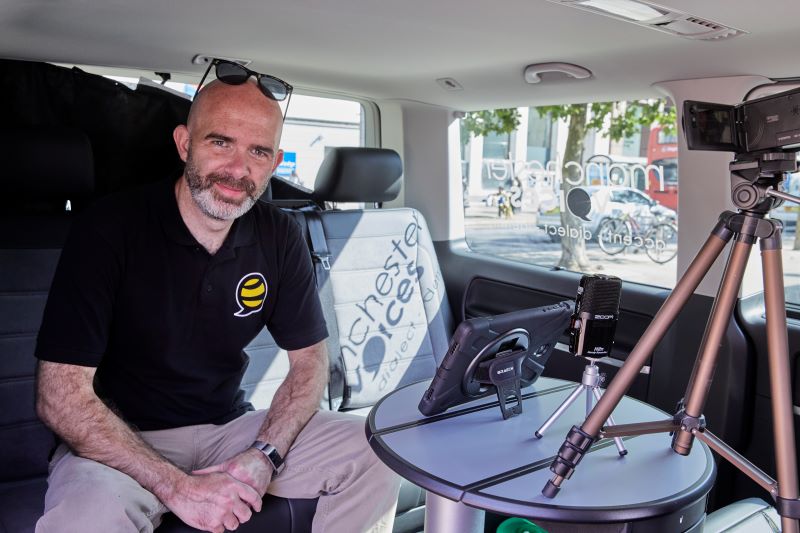- 200 years
- Study
- International
- Business and employers
- Research
- About us
Investigation into ways of speaking reveals insights into personal identities.

Professor Rob Drummond's new book explores accents, spoken English and human behaviour
Why do Cockney voices differ from Scouse? How can accents hold us back? And why – whether we admit it or not - do we have a special ‘phone voice’? These and other questions are answered by linguist Professor Rob Drummond in a new book that shows that one way of speaking is no better than any other.
Exploring the enormous diversity in spoken language, You’re All Talk: why we are what we speak reveals insights into how humans operate, how we perceive (and judge) other people, and how we ourselves would like to be perceived.
From ‘style-shifting’ – adapting our voice and the way we speak to navigate different social situations – to the often stigmatised ‘vocal fry’ – AKA ‘creaky voice’ or ‘Valley Girl’ speech – Professor Drummond scrutinises the quirks, beauty, and biases of linguistic diversity.
Highlighting the potential harms of how we perceive different voices, Drummond explains how vocal and accent prejudice and discrimination can contribute to racism, sexism and homophobia, and how it can hold us back.
The way we speak is so linked to who we are - it’s such a fundamental part of identity. We all adjust the way we speak to perform or portray different identities and different parts of ourselves – either consciously or subconsciously.
Drummond looks at how people can be pressured to change their speech patterns in order to succeed and even to survive, and reflects on the, at times, amusing and revealing situations when politicians have been accused of faking accents to relate to people.
Investigating a history of accents in the UK, he uncovers why we sound like we do, and how accents are formed by our experiences – and vice versa.
Professor Drummond said: “The way we speak is so linked to who we are - it’s such a fundamental part of identity. We all adjust the way we speak to perform or portray different identities and different parts of ourselves – either consciously or subconsciously.
“For this book I wanted to explore this concept and dig down into what these mean for our sense of self and how we might view, and even judge, other people due to their voice or accent.”
Drummond’s latest work follows several years of research into what he coined ‘accentism’ – accent-based prejudice and discrimination. Manchester Voices, his three-year project with other Manchester Met sociolinguistics, investigated how people speak across the region, including a unique ‘accent van’ kitted out with a mobile recording studio offering the public a quiet place to reflect on their accent.
He said: “Learning people’s personal thoughts about their accents was enlightening. I enjoyed hearing about the pride some participants had in their way of speaking but sadly for others it was clear that unhelpful accent stereotypes hold them back.
“That’s what I set out to address in the book, and I hope in some small way I’m able to inform people and challenge them to take a fresh look at how they perceive their own and other people’s accents and ways of speaking.
“The bottom line is that there’s nothing objectively better or worse than any particular way of speaking – our personal perceptions, judgements and biases are purely due to social baggage.”
Professor Drummond’s new book You’re All Talk: why we are what we speak, is available from 12th October online and in bookshops. You can listen to Professor Drummond talking about the diversity in our spoken language and accent bias in September’s episode of MetCast, Manchester Met’s podcast.
Tuesday, 19th September 2023
